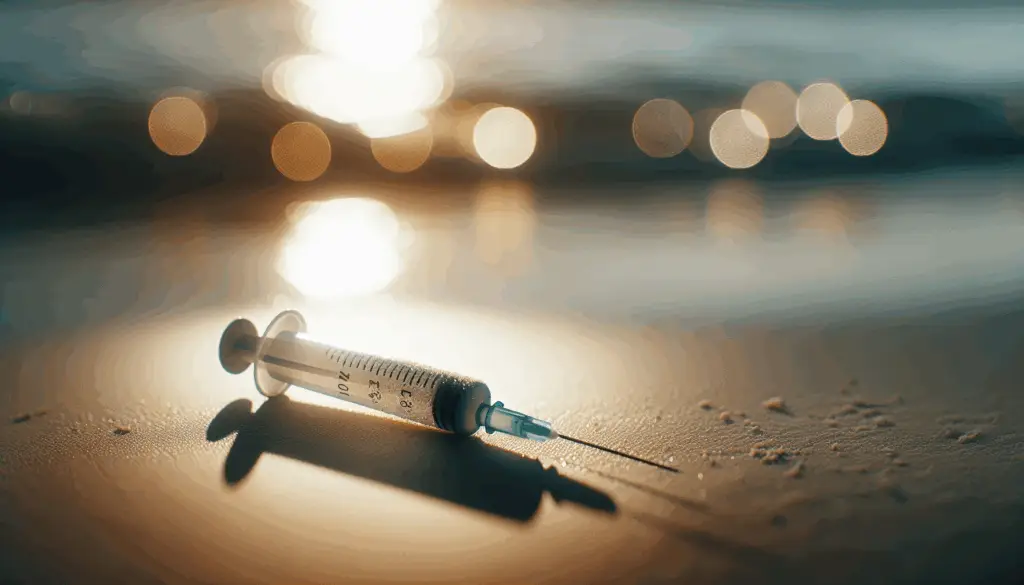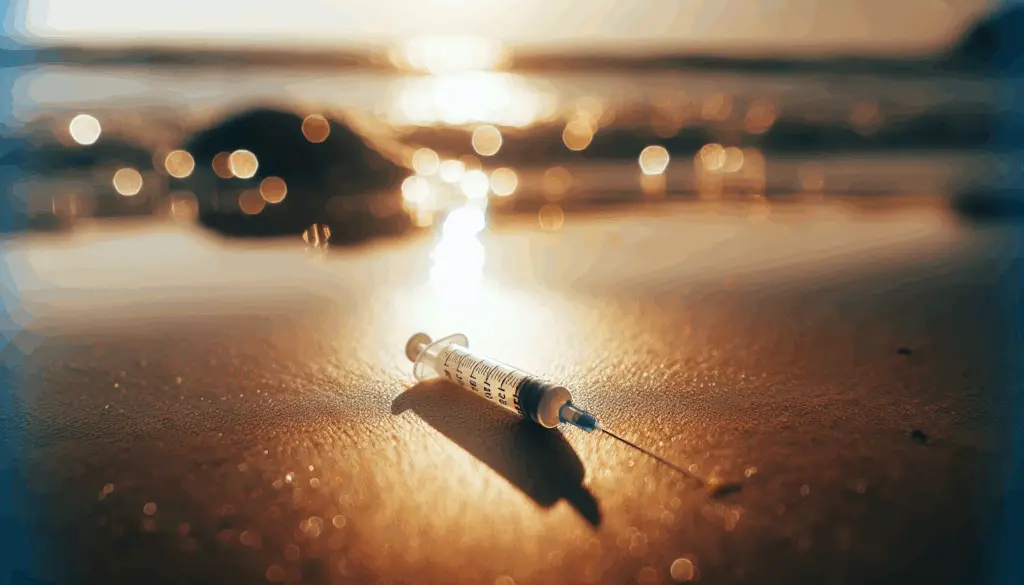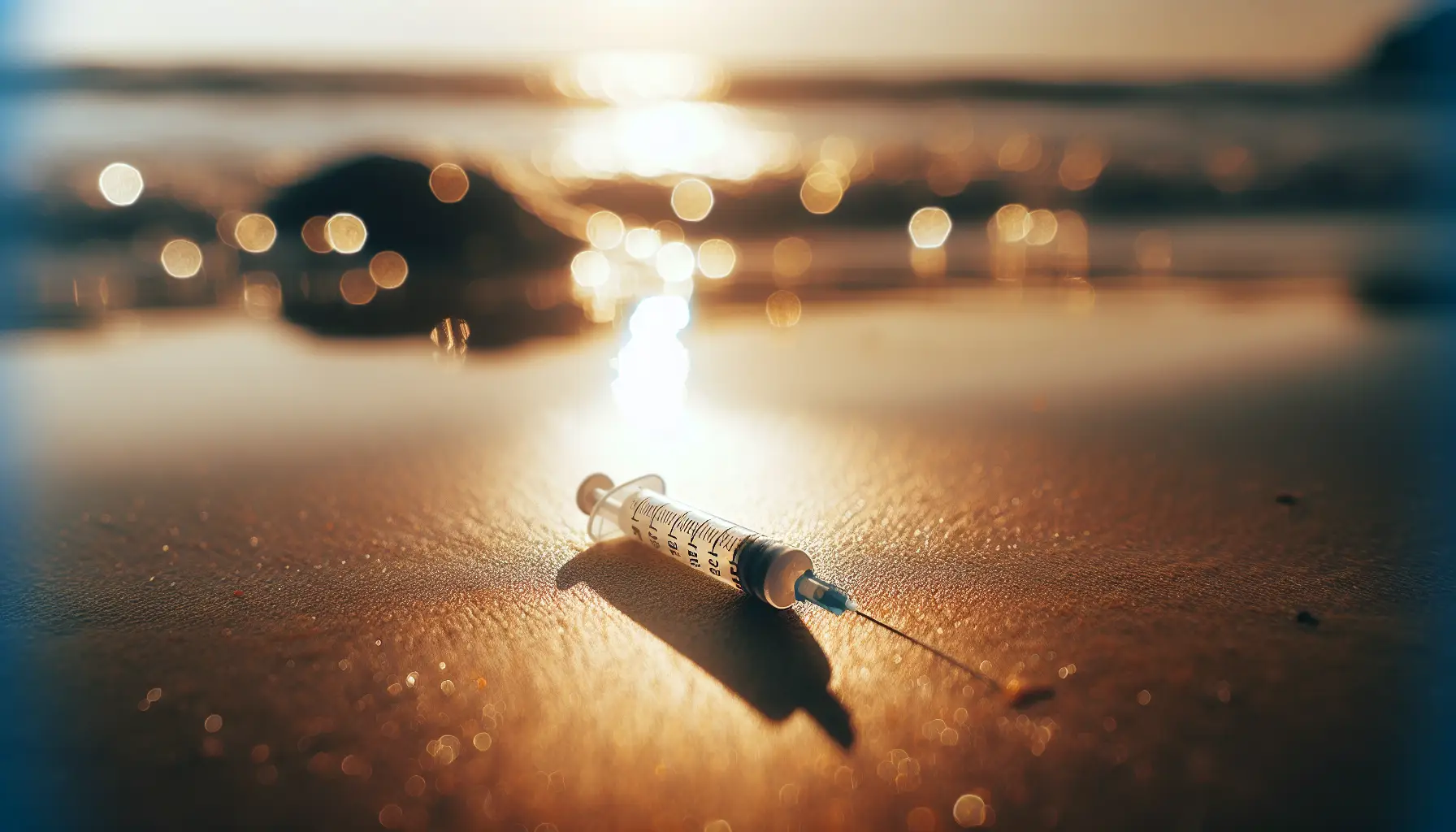Have you ever wondered how law enforcement handles cases where contraband is found hidden inside a person’s body?

A Florida man was arrested on drug charges and told authorities that the syringes discovered in his rectum were not his
You’re reading about a startling report: a Florida man was arrested on drug charges and reportedly told authorities that the syringes discovered in his rectum were not his. The unusual nature of this claim raises questions about the legal process, medical risks, police procedure, and how evidence like this is treated in court. Below you’ll find a clear, friendly, and detailed breakdown of the incident, the implications, and practical information you can use if you or someone you know is involved in a similar situation.
What the basic report says
The published reports state that law enforcement arrested a man in Florida on drug-related charges. During the arrest or a subsequent search, syringes were discovered in his rectum. The man allegedly told officers the syringes were not his. This claim becomes part of the public record and may influence how the case unfolds.
You’ll want to understand each part of this scenario to assess the potential legal and health consequences, and how authorities are likely to proceed.
Understanding the sequence: what likely happened
You can better understand the case by breaking the sequence into common law-enforcement steps: encounter, detention or arrest, search, evidence collection, medical intervention, charging decisions, and processing.
Encounter and initial stop
When police encounter a person suspected of drug activity, you’ll usually see an initial investigative stop or approach. Officers may question, observe behavior, or act on a tip.
You should know that not every encounter leads to a detention, but an officer’s reasonable suspicion can justify a brief stop to confirm or dispel concerns.
Detention, probable cause, and arrest
If officers develop probable cause—such as visible contraband, paraphernalia, or admission of illegal activity—they may arrest the person. Arrest allows more extensive searches incident to arrest.
You’ll find that arrest establishes a legal framework for the next steps, including searches and holding for charges.
Search and discovery of internal contraband
When law enforcement suspects someone is hiding contraband internally, there are specific legal and medical steps they’ll typically follow. Internal concealment, whether in the rectum, mouth, vagina, or body cavities, is treated seriously.
You should be aware that discovery of internal contraband often requires medical assessment and careful evidence handling to preserve safety and chain of custody.
Medical evaluation and evidence removal
If contraband is inside a body, medical personnel usually remove it under controlled conditions. You’ll see that this protects the person’s health and ensures evidence is collected safely and forensically.
This stage is critical: improper removal can cause injury and compromise evidence. You should expect hospitals to document removal and for medical staff to cooperate with law enforcement while respecting medical ethics.
Legal aspects: charges and potential penalties
Understanding the legal side helps you grasp how serious such an arrest can be and what to expect next.
Typical charges in internal concealment cases
Charges commonly include possession of controlled substances, possession with intent to distribute (if quantities or paraphernalia suggest distribution), and sometimes charges related to obstruction or resisting law enforcement.
You’ll find that the exact charges depend on the substance type and quantity, accompanying evidence (like scales or large amounts of cash), and local statutes.
Florida-specific statutes and penalties
Florida law defines controlled substances and sets penalties by schedule and amount. Possession of some substances can be a misdemeanor, but larger amounts or intent to distribute are felonies.
You should note that felony drug convictions in Florida can carry years in prison, fines, mandatory probation, and collateral consequences such as loss of certain civil rights and difficulty securing housing or employment.
Evidence and burden of proof
Prosecutors must prove beyond a reasonable doubt that the defendant knowingly possessed illegal substances. If syringes or drugs are removed from a body, forensic testing and chain-of-custody documentation are crucial.
You’ll want to understand that defenses often challenge whether the defendant knowingly possessed the contraband or whether evidence was lawfully obtained.
Your rights during searches and arrests
Knowing your rights helps you avoid self-incrimination and ensures proper treatment during encounters with police.
Right to remain silent
You can remain silent and request an attorney. Anything you say can be used in court, so it’s usually best to limit statements until you have legal counsel.
You should exercise your right clearly—politely state that you are invoking your right to remain silent and request an attorney.
Right to refuse certain searches
You generally have the right to refuse consent to searches of your property. However, searches incident to arrest, warrant-based searches, or situations involving public safety (like suspected internal concealment) may allow officers to act without consent.
You’ll see that context matters: if officers have probable cause or a warrant, your refusal may not prevent a search.
Medical privacy and forced medical procedures
Courts balance individual bodily autonomy against law enforcement interests. Forced medical procedures for evidence removal are legally sensitive and generally require judicial oversight—depending on circumstances, such as immediate risk to the person’s health.
You should understand that in many jurisdictions, officers need a warrant or exigent circumstances (risk of serious harm or destruction of evidence) to compel invasive medical procedures.
Health and safety concerns when contraband is internal
Putting syringes or other objects inside your body carries serious medical risks. Whether or not the syringes in this case were the subject’s, the risks are the same.
Physical risks of internal syringes
Syringes can puncture tissue, cause infection, lead to internal bleeding, or migrate within the body, causing further complications.
You’ll want to recognize that delays in medical care can exacerbate these issues, and emergency removal may be required.
Risks of bloodborne pathogens
Used syringes can carry bloodborne pathogens like HIV, hepatitis B, and hepatitis C. Handling or removing syringes without appropriate precautions poses infection risks to medical staff and others.
You should always seek professional medical attention if you suspect exposure, and healthcare providers will follow standard precautions to protect themselves and other patients.
Psychological and social health impacts
Being involved in arrests and body concealment incidents can be traumatic. The stigma, potential criminal consequences, and health fears can affect mental health.
You’ll find that counseling, support groups, or crisis services can help address trauma and connect you with resources for recovery.
Forensic processing: how evidence is handled
When syringes or drugs are removed and treated as evidence, rigorous processes preserve their integrity.
Chain of custody
A documented chain of custody records every person who handled the evidence from recovery to courtroom presentation. This helps prevent claims of tampering or contamination.
You should expect chain-of-custody documentation to include times, dates, personnel, and secure storage information.
Forensic testing and lab analysis
Substances recovered are typically sent to crime labs for chemical analysis to confirm identity and weight. Syringes may be tested for fingerprints or biological traces.
You’ll see that lab reports provide essential evidence for prosecutions or defenses contesting the substance identity or ownership.
Medical records and expert testimony
Medical professionals who remove internal contraband may be called to testify about the procedure, condition of the items, and any health risks or findings.
You should know that expert testimony can be pivotal, explaining to a jury how items were discovered and handled in compliance with protocols.
Common defenses in internal possession cases
If you’re involved in such a case, understanding common defenses helps you evaluate legal strategies.
Denial of knowledge or ownership
A defendant may claim the contraband wasn’t theirs or that they were unaware of it. This appears to be what the Florida man alleged when he told authorities the syringes weren’t his.
You’ll find courts scrutinize such claims, weighing physical evidence, testimony, and circumstantial factors when assessing credibility.
Challenge to legality of search and seizure
If the search that led to the discovery violated constitutional protections, defense counsel may move to suppress evidence. For example, a warrantless, forced medical search without exigent circumstances could be contested.
You should know suppression of evidence can significantly weaken a prosecution’s case if successful.
Chain-of-custody or testing challenges
Defense may argue evidence was mishandled, contaminated, or incorrectly tested, undermining reliability.
You’ll want to ensure your lawyer requests lab documentation and chain-of-custody records to evaluate potential challenges.
Ethical and privacy considerations
Cases involving intimate body searches raise ethical and privacy questions for law enforcement and media.
Medical ethics
Physicians and hospitals must balance patient care with legal obligations. Physicians aim to prioritize health and adhere to consent standards where possible.
You should recognize that medical ethics require confidentiality and the least invasive methods consistent with safety and legal requirements.
Privacy and dignity
Invasive searches can violate personal dignity. Law enforcement is expected to minimize intrusion and treat individuals respectfully.
You’ll find that courts and oversight bodies examine officers’ conduct in highly intrusive searches for proportionality and necessity.
Media reporting responsibility
Reports on sensitive arrests should avoid sensationalism and protect non-essential personal information. Ethical reporting recognizes the presumption of innocence until proven guilty.
You should expect reputable outlets to stick to verified facts and avoid gratuitous details that serve only to humiliate.

What happens next in cases like this
Understanding the typical case roadmap helps you anticipate potential developments.
Booking and arraignment
After arrest, you’ll usually be booked and later appear for arraignment, where charges are formally read and bail is addressed.
You should contact an attorney promptly to plan your defense and contest bail if appropriate.
Pretrial motions and discovery
Defense counsel will often file motions—such as to suppress evidence—and request discovery, which includes police reports, medical records, and lab results.
You’ll see that discovery can reveal weaknesses in the prosecution’s case or potential defenses.
Plea negotiations or trial
Many drug cases resolve through plea agreements, but cases with contested evidence may proceed to trial.
You should consider that your attorney will weigh risks and benefits of pleas versus trial based on the evidence, likely outcome, and personal circumstances.
Practical guidance if you or someone you know faces similar circumstances
If you’re directly involved in a situation where contraband is discovered internally, follow these practical steps.
Seek immediate medical attention
Your health comes first. If you suspect anything is lodged inside your body, get medical care promptly to avoid infection or injury.
You’ll be protected by medical confidentiality, and healthcare providers will handle removal safely.
Invoke your rights and request counsel
When dealing with police, you can calmly state that you are invoking your right to remain silent and request an attorney. Don’t make detailed statements without counsel present.
You should give your attorney as much information as possible in private so they can represent you effectively.
Document everything and collect evidence
If possible, note dates, times, names of officers, and any witnesses. Your attorney may use this information to challenge procedures or gather supportive testimony.
You’ll find that written records and witness contacts can be invaluable for building your defense.
Table: Quick reference — rights, actions, and contacts
| Situation | Your rights | Recommended immediate action |
|---|---|---|
| Questioning by police | Right to remain silent, right to attorney | Calmly say you invoke your rights and ask for a lawyer |
| Search of your person | Limited; officers may search incident to arrest | Do not resist; state non-consent if appropriate, document the event |
| Internal contraband suspected | Medical evaluation may be required; forced removal typically needs legal basis | Get medical attention, inform staff of the situation |
| Arrested on drug charges | Right to bail, right to counsel | Contact an attorney, do not make admissions |
| Evidence handling | Right to challenge chain of custody and testing | Instruct attorney to request discovery and lab reports |
You should keep this table handy as a quick checklist if you face an encounter with law enforcement around suspected internal contraband.
Public safety and community considerations
These incidents affect public safety, trust in institutions, and community health systems.
Impact on emergency services
Emergency departments and first responders may face added workloads and occupational hazards when treating internal contraband cases, including needle-stick risks.
You’ll be aware that public health protocols help mitigate risks but can stress resources in communities with high rates of substance use.
Substance use and harm reduction
The broader context often includes substance use disorders. Harm-reduction approaches—like syringe-exchange programs, supervised consumption sites, and treatment access—aim to reduce harm and prevent such risky concealment behaviors.
You should consider that policies supporting harm reduction can lower both health risks and emergency interventions.
Community trust and policing
These events can shape community perceptions of policing and healthcare. When searches or medical removals appear heavy-handed, trust may erode.
You’ll find that transparent procedures, community oversight, and responsive public health measures help rebuild trust.
FAQs you might have
Here are common questions you might ask about cases like this, answered succinctly.
Can you be charged for contraband found inside your body?
Yes. If prosecutors can prove you knowingly possessed illegal substances, you can be charged. Proving knowledge can be complicated depending on circumstances.
You should rely on legal counsel to analyze the facts and potential defenses.
Are police allowed to remove items from inside your body?
They can request medical assistance for safe removal. For forced procedures, courts generally require stronger justification, like a warrant or exigent circumstances.
You should know medical and legal standards vary by jurisdiction.
What health risks do syringes pose if found internally?
They can puncture tissue, cause infection, and expose you to bloodborne infections. Prompt medical care minimizes risks.
You’ll want to avoid trying to remove embedded objects yourself.
How an attorney can help you
Legal representation matters in cases involving sensitive searches and medical issues.
Legal strategy and motion practice
Your attorney can file motions to suppress improperly obtained evidence, challenge search legality, and question lab procedures.
You should choose counsel experienced in criminal defense and constitutional law for best outcomes.
Negotiating with prosecutors
Experienced lawyers can negotiate charge reductions or alternative sentences, like diversion programs for substance misuse.
You’ll appreciate that negotiation can resolve cases without the risks of trial when appropriate.
Coordinating medical records and expert testimony
Your lawyer can gather medical records, consult experts, and prepare to counter or clarify medical evidence in court.
You should ask your attorney about potential experts, such as physicians or forensic specialists.
Ethical reporting and public reaction
Stories like this generate strong reaction. It’s important to balance public interest with fairness.
Responsible media practices
You can expect responsible outlets to report verified facts, avoid sensationalized imagery, and respect privacy when possible.
You should critically consume such reports and consider the presumption of innocence.
Community responses and stigma
Public reactions often include stigma toward substance users. Constructive community responses focus on treatment, health services, and safer policies.
You’ll make more effective contributions to community welfare by supporting evidence-based interventions.
Resources and support
If you or someone you know faces a similar situation, there are resources to help with health and legal support.
Medical resources
- Emergency departments and urgent care centers for immediate health risks
- Local public health departments for infection testing and counseling
- Harm-reduction programs for safer-use supplies and referrals
You should seek care promptly and follow medical advice.
Legal resources
- Public defenders or court-appointed counsel if you cannot afford an attorney
- Local criminal defense attorneys with drug-case experience
- Legal aid organizations and bar associations for referrals
You’ll want to secure counsel early to protect your rights.
Mental health and recovery supports
- Crisis hotlines and mental health care providers
- Substance-use treatment programs, including outpatient and inpatient services
- Peer-support groups and community recovery resources
You should recognize that recovery and mental-health support can be central to long-term wellbeing.
Final considerations and takeaways
When you encounter news about arrests involving internal contraband, it’s natural to react with surprise or curiosity. However, looking beyond sensational headlines to the legal procedures, health risks, ethical dimensions, and human impacts gives you a fuller understanding.
You’ll find that the core issues include:
- Ensuring safety and medical care for anyone with internal contraband,
- Protecting constitutional rights during searches and arrests,
- Maintaining careful forensic standards,
- Considering harm-reduction and public-health approaches to substance use,
- And recognizing the role of ethical media reporting.
If you or someone you know is affected by a similar incident, prioritize medical care, assert your legal rights, and seek experienced legal counsel. These steps will help protect your health and legal interests while the system addresses the case.
